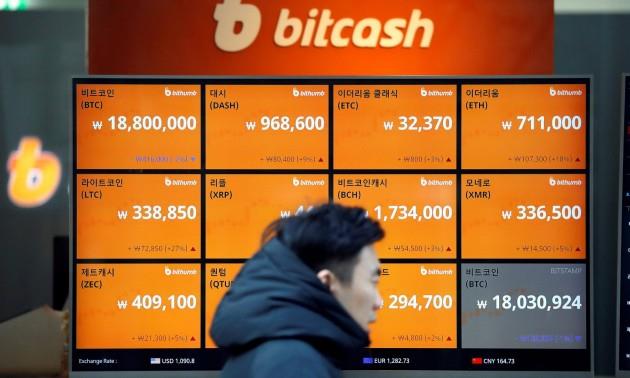
Asian exchanges look overseas to avoid local crackdowns
With interest in Asia in the crypto industry growing almost daily, exchanges are scrambling to get their services offered to the greatest possible markets and so beat their competitors.
The recent clampdowns in China, South Korea and India have resulted in a number of these exchanges packing up shop in search of crypto-friendlier countries.
The daily<> Must-reads from across Asia - directly to your inboxOne of China's largest exchanges, Huobi, halted all trading in September 2017 following the government's crackdown on initial coin offerings (ICOs). The Beijing-based exchange immediately sought friendlier markets in neighboring Japan, where it bought a 30% stake in Tokyo-based SBI Virtual Currencies.
At its peak, Huobi accounted for 60% of the global Bitcoin trade, had 1.65 million user accounts and recorded daily trade volumes of more than 30 billion yuan.
Huobi is now headquartered in Singapore, but has plans to branch out of Asia and open offices in San Francisco and London. In addition to the exchanges, a number of large Bitcoin mining operations have also moved out of China, which has placed restrictions on their energy consumption. Canada has long been a choice destination for mining farms due to its low cost of electricity.
Last month Hong Kong-based exchange Binance announced it was opening offices in Malta to tap into European markets. The company stated it had reviewed several locations before deciding on Malta for its pro-blockchain legislation and financial stability. Malta has been dubbed 'blockchain island' for its crypto-friendly status.
In South Korea , where ICOs are also banned, companies have moved to more welcoming nations to launch their blockchain projects. Korea's own version of Ethereum, Icon, was issued in Switzerland to circumnavigate local restrictions. Regulatory bodies in the country are unable to investigate and regulate companies that have moved overseas to raise funds for their ICOs.
Icon (ICX) was launched by the DAYLI Financial Group. It started trading on March 21 at Bithumb, the largest crypto-currency exchange in South Korea. About a dozen South Korean companies, including an affiliate of corporate giant Hyundai Group, have launched ICOs overseas and the trend is likely to continue while restrictions remain in place and the government remains indecisive about the industry.
In India crypto-currency traders have turned towards peer-to-peer platforms following the Reserve Bank of India's clampdown on exchanges earlier this month. This involves buying and selling digital currencies directly without using an exchange. The banks and governments cannot control this method of trading. The RBI has not banned trading outright in the country, but barred banks and financial institutions from dealing in digital currencies.
Thailand, meanwhile, is poised to slap a hefty 22% tax on crypto-currencies, which will no doubt result in an exodus of blockchain companies from the Kingdom. The two most welcoming countries in the region are now Japan and Singapore and they will continue to benefit from clampdowns and heavy regulation in other Asian nations.
Please contact us with feedback, news or stories.
<> <> <> <> crypto industry Asia Huobi SBI Virtual Currencies ICO intial coin offering Singapore San Francisco London China Binance Hong Kong Malta Ethereum Icon Switzerland DAYLI Financial Group Bithumb South Korea hyundai Reserve Bank of India Thailand The Chain Comments
Legal Disclaimer:
MENAFN provides the
information “as is” without warranty of any kind. We do not accept
any responsibility or liability for the accuracy, content, images,
videos, licenses, completeness, legality, or reliability of the information
contained in this article. If you have any complaints or copyright
issues related to this article, kindly contact the provider above.


















Comments
No comment